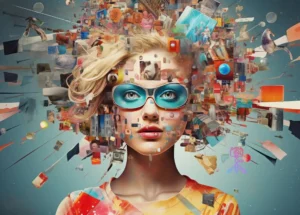The Future of Influencer Marketing: What’s Next for Brand Collaborations?
Influencer marketing has transformed into a fundamental aspect of digital branding, growing from a specialized approach into a multi-billion-dollar sector. But with changing consumer behaviors, emerging technologies, and new regulations, the future of influencer marketing is set to take exciting new directions. So, what’s next for brand collaborations? Let’s explore the trends shaping the future.
- The Rise of AI-Powered Influencers
The emergence of AI-generated influencers—such as Lil Miquela and virtual brand ambassadors—is redefining influencer marketing. Brands are investing in digital personalities that can interact with audiences, create content, and represent businesses without real-world limitations. This transformation is creating detailed discussions about authenticity and engagement.

- Micro-Influencers Will Take Center Stage
While big-name influencers with millions of followers remain relevant, brands are increasingly turning to micro- and nano-influencers (1,000 to 100,000 followers). These influencers boast higher engagement rates, deeper connections with their audiences, and often produce more organic content, making collaborations more effective and relatable.
- Authenticity Will Drive Engagement
consumers are becoming less trusting of brand partnerships that seem too perfect or overly curated. They may feel that such collaborations are insincere, purely driven by marketing, or disconnected from real consumer interests. Instead, people tend to appreciate more authentic and organic brand relationships that feel genuine and relatable. This reflects a broader shift towards valuing transparency and authenticity in advertising and branding. The future of influencer marketing lies in genuine, unscripted storytelling—real-life testimonials, behind-the-scenes content, and influencers who truly believe in the products they promote
- Live Shopping & Social Commerce Expansion
Live-stream shopping is becoming more popular, particularly on social media platforms such as TikTok, Instagram, and YouTube. Brands will integrate influencers into live commerce experiences, allowing real-time product demonstrations, Q&A sessions, and instant purchases. Influencers will act as trusted guides, helping followers make purchasing decisions on the spot.
- Regulations Will Shape the Industry
With influencer marketing facing increasing scrutiny, governments and platforms are implementing stricter disclosure rules on paid promotions. Brands must adhere with advertising guidelines, ensuring influencers clearly disclose sponsorships to maintain trust and credibility.
- Interactive & Immersive Content Will Dominate
Augmented reality (AR), virtual reality (VR), and interactive content will revolutionize influencer marketing. Expect influencers to collaborate with brands in virtual pop-up stores, 3D product trials, and immersive brand experiences where followers can engage in exciting new ways.
- Subscription-Based Influencer Partnerships
Instead of one-off promotional deals, influencers may offer subscription-based content for their most dedicated followers. This can include exclusive brand collaborations, personalized recommendations, and gated content, making influencer-brand relationships deeper and more valuable.
- Brands Will Prioritize Long-Term Relationships
Rather than one-time influencer campaigns, brands will increasingly invest in long-term partnerships with creators. Consistent collaborations foster trust and allow influencers to develop authentic brand advocacy, leading to stronger connections with audiences.
Conclusion
As a best digital marketing expert, I wish to conclude that the future of influencer marketing isn’t just about promoting products—it’s about authentic connections, innovative content formats, and meaningful collaborations. As technology advances and consumer expectations evolve, brands must adapt their influencer strategies to stay relevant and impactful.
